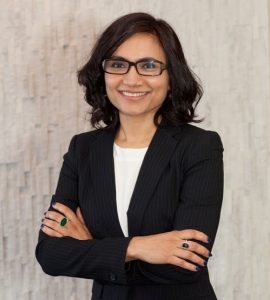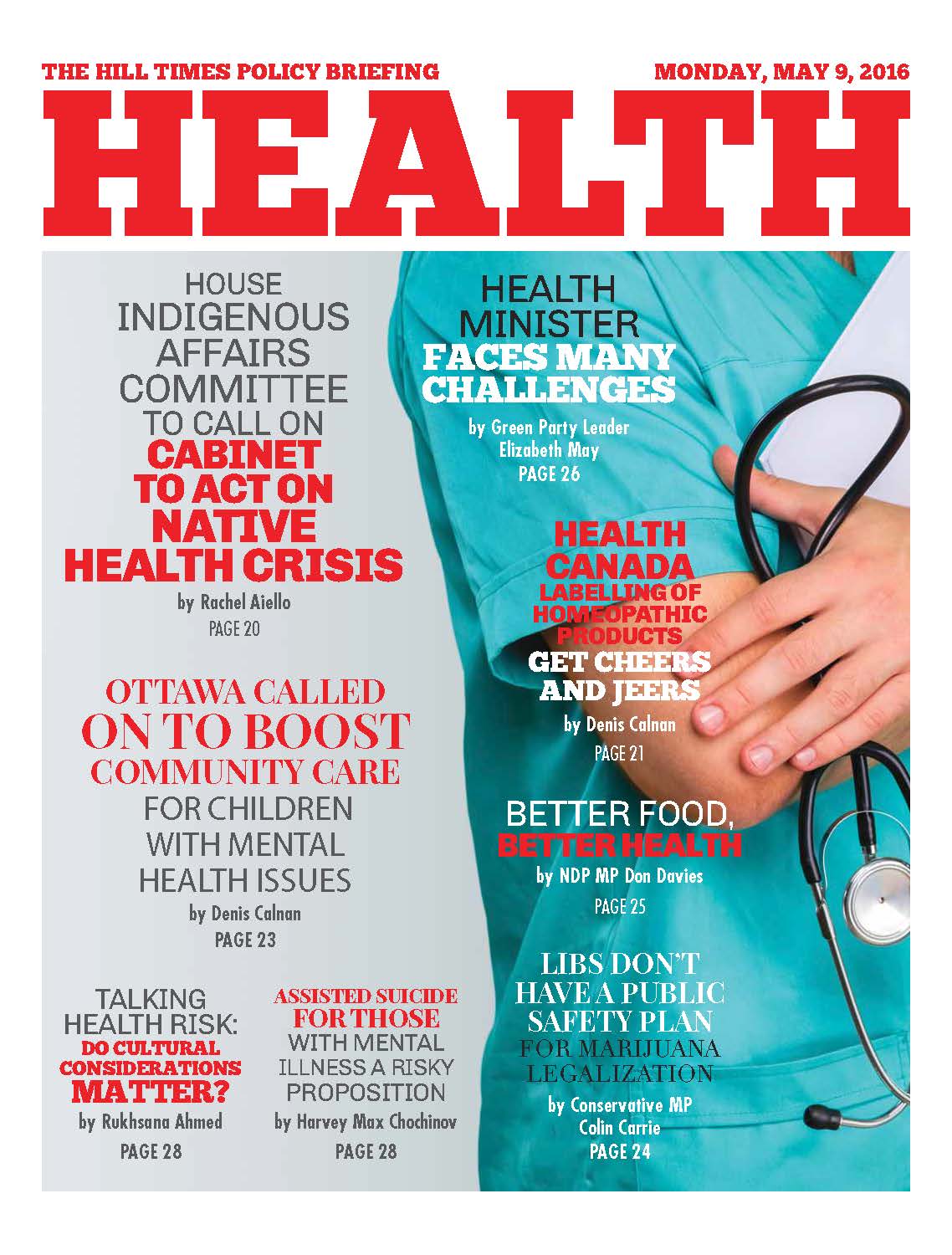
Media
University professors call for more women in the sciences
The Hill Times, March 8, 2018Online
URL: http://www.hilltimes.com/2018/03/08/university-professors-call-women-sciences/136858

Talking health risk: do cultural considerations matter?
THE HILL TIMES, May 9, 2016Online
URL: http://www.hilltimes.com/2016/05/09/talking-health-risk-do-cultural-considerations-matter/61033
Last month, I participated in a workshop where experts and practitioners representing different academic disciplines and policy fields came together to explore issues related to risk management and evidence-based decision-making. I left the meeting with two thoughts percolating in my head: We are, indeed, inhabitants of what German sociologist Ulrich Beck coined a ‘‘risk society.” And, to my dismay, we are yet to have a meeting of minds between the fact-based scientists/experts and the value-based public.
Imagine Salma, a 55-year-old woman, working at her sewing machine in her Barrhaven condo. Thirty years back, she migrated to Ottawa, Canada, as an Arab refugee. Salma stops the sewing machine as her son brings her letters in the mail. Muting the Arabic Program CHIN Radio Ottawa, 97.9 FM, Salma opens the letter from the Ontario Cervical Screening Program. The letter begins: “[Dear Salma al-Siddiqa], we are writing to invite you to get screened for cervical cancer. This year, cervical cancer will be found in about 1,500 women in Canada and at least one woman will die every day from this disease. The good news is that you can take steps to protect yourself from cervical cancer by having regular Pap tests….” Losing interest, Salma stops after reading this first paragraph of a one-page letter inviting her to book a Pap test. She crumples and throws the letter into a waste basket standing next to her sewing machine and gets back to working on her clients’ clothes.
An unfortunate bias in calculating health risks is thinking we are all rational decision-makers. The decisions we make about our health are oftentimes culturally informed and emotionally driven. For example, Rebecca Ferrer and colleagues argue that “sadness or fear would enhance decision-making when recommendations are ambiguous and depend on personal values and priorities.” The question then arises as to if and how much we know about personal beliefs and preferences as they relate to how we view risk and how these views influence our health behaviours. In fact, I had the opportunity to engage some Muslim immigrant women living in Ottawa in focus group discussions about their views and opinions on health, illness, and healing. As I invited these women from different age groups, countries/regions of origin, and levels of educational attainment, to talk about cultural/ religious healing practices that they believed in, many women expressed their faith in Islam.
One woman from South Asia shared: “I always believe in religious things. When I get sick, I take medicine, go to the doctor. In Canada, because of weather changes, I got flu. I go to walk-in-clinic, since I do not have family physician. When I went to the clinic, the waiting time was so long. I did not meet any doctor in Ottawa. Then I used to pray to Allah; this is like kind of healing, like meditation—praying and taking indigenous medicine recommended by the community. Go for this hot water, cold water, juices, take this food, and avoid these things. These are things I followed here. These are mental things almost. Flu remained for six to seven days. After that, eventually I became better. I believe that due to prayer, meditation, I became better.”
So what can we distill from Salma’s story and the excerpt from the illness experience of the Muslim immigrant woman?
Let us say, after arduous number crunching, we developed robust forecasting for health risk management. But, what good would it be if it fails to account for the ways in which language, culture, religious beliefs, and tradition shape the way different ethno-cultural population groups make decisions about their health and the health of their families? In the absence of any assessment of cultural considerations—various preferences, needs, and beliefs— how can we design evidence based culturally informed health risk reduction personalized messages?
In a multicultural society like Canada, paying attention to nuanced beliefs and practices can help inform how a health message is received, read, and acted on by the target audience. This knowledge about health decision-making at the individual level can offer insights for public health decision making at the policy level.
To put it plainly: Cultural considerations do matter. Now let us make them heard and count!
*The link to the original Op-Ed in the Hill Times published on 9 May 2016:
(http://www.hilltimes.com/2016/05/09/
talking-health-risk-do-cultural-
considerations-matter/61033/)
Media etnică de limba româna din Canada
Marca-RO, March 12, 2016Online
URL: http://marca-ro.ca/media-etnica-de-limba-romana-din-canada/
Routledge
September 21, 2017
ISBN-10: 1138224898; ISBN-13: 978-1138224896
Both international and internal migration brings new challenges to public health systems. This book aims to critically review theoretical frameworks and literature, as well as discuss new practices and lessons related to culture, migration, and health communication in different countries. It features research and applied projects conducted by scholars from various disciplines including media and communication, public health, medicine, and nursing.
Biography
Within the broader field of communication studies, Rukhsana Ahmed's primary research interests lie at the intersections of health, interpersonal, intercultural, and organizational communication. In particular, her research embraces the cross/trans/inter-disciplinary nature of communication scholarship, with specific focus on exploring the role of communication processes in improving health outcomes among marginalized communities and promoting broader organizational and social changes and innovations in local, national, and international health contexts. She studies the interaction of people involved in the health care process and the dissemination and interpretation of health-related messages by individuals, groups, organizations, and/or mass media. She pays attention to how these messages are mediated through various socio-cultural, political, and economic factors. She is particularly interested in the ways systems of beliefs, values, actions, and symbols are shared, or not, by people and how social groups influence communication in health care interactions in various contexts, including interpersonal, intercultural, organizational, mass mediated, and technological.
Although Ahmed's research background is one deeply rooted in health communication, her interdisciplinary background has afforded me to develop interests and expertise, as well as establish fruitful collaborative research partnerships and multi-sectoral projects in complementary areas, including immigrant and refugee health; religious diversity; multicultural media; social media; and risk communication, among others. Ahmed's research projects have significance for scholarship, policy, and practice. Through her projects, she strives to provide empirical evidence, shed light on the significance of designing theoretically driven and methodologically sound research, and offer user-oriented skills learning and training programs for different stakeholders.
Recognition/Reconnaissance
Research Recognition | Professional
(2018). Top Paper in Health Communication, Eastern Communication Association Annual Convention, USA
Research Recognition | Professional
(2017). Top Paper in Business Communication, National Communication Association Annual Convention, USA
Research Recognition | Professional
(2017). Top Paper in Applied Communication, Eastern Communication Association Annual Convention, USA.
Research Recognition | Professional
(2016). Top Paper in Game Studies, National Communication Association Annual Convention, USA.
Research Recognition | Professional
(2013). 2012 Distinguished Edited Book Award, Applied Communication Division of the National Communication Association, USA.
Research Recognition | Professional
(2007). Top Student Paper in Rhetoric and Public Address, Southern States Communication Association Annual Convention, USA.
Research Recognition | Professional
(2006). Top 5 Paper in Health Communication, Eastern Communication Association Annual Convention, USA.
Research Recognition | Professional
(2005). Top Paper in Experiential Learning in Communication, National Communication Association Annual Convention, USA.
Additional Titles and Affiliations
Core Member
Institute for Science, Society and Policy (ISSP), University of Ottawa, Canada
External Researcher
Institute of Communication and Health (ICH), University of Lugano, Switzerland
Affiliate Faculty
Institute of Feminist and Gender Studies, University of Ottawa, Ottawa, ON, Canada
Affiliate Faculty
Electronic Business Programs, University of Ottawa, Ottawa, ON, Canada
Affiliate Faculty
Population Health Ph.D. Program, University of Ottawa, Ottawa, ON, Canada

